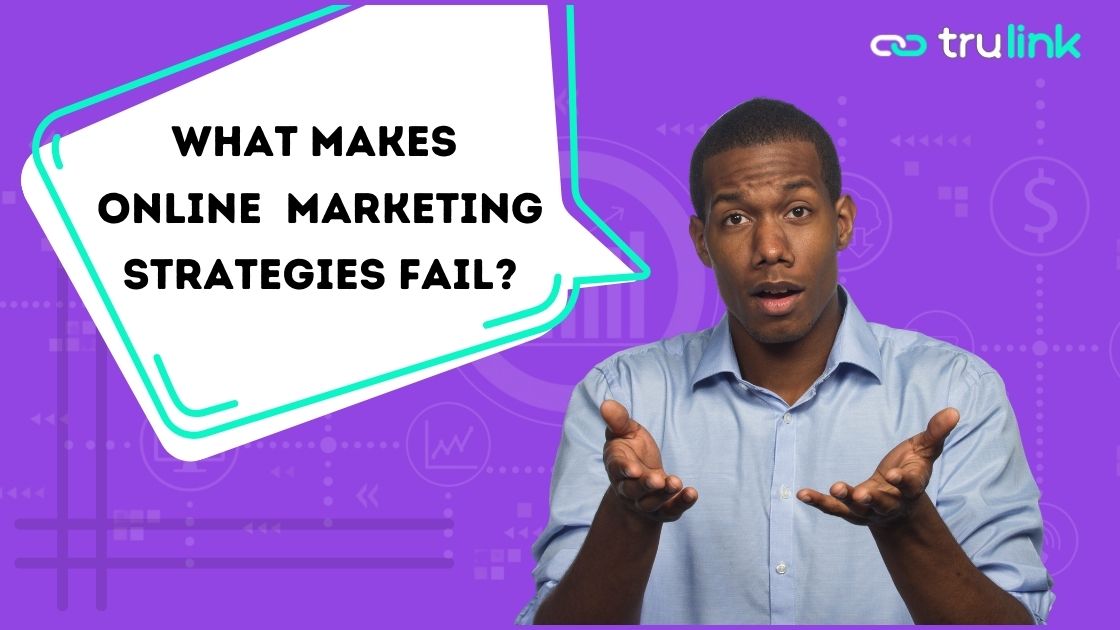Blog
What Makes Online Marketing Strategies Fail
by Timothy Munene, August 09 2022

Having an online marketing strategy is essential for any growing business that wants to stay competitive. According to a GroupM report, digital advertising accounted for 64.4% of all advertising in 2021. This is up from 60.5% in 2020 and 52.1% in 2019. The online advertising industry is growing, and it’s more important than ever that businesses adopt a marketing strategy that yields positive results or risk falling behind. However, many businesses fail to get it right. Here are some common online marketing missteps to avoid:
1. An Inadequate Budget
In hard times, the marketing department is often one of the first departments to suffer. A similar phenomenon also occurs when it’s time to allocate a budget for advertising. Some erroneously see marketing as non-essential and therefore devote a minimum amount to it. However, you cannot squeeze something from nothing. Successful marketing requires resources. Otherwise, you’ll be spread too thin to make an impact in the areas you want. For example, if you want your pay-per-click ads to have high visibility and good click-through rates, you will have to spend a decent amount. Don’t cross your fingers and hope for the best.
2. Poorly Defined Goals
You have to have something you are aiming for. A scattershot approach will result in wasted expenditure and an uncertain impact. According to a CoSchedule survey report, marketers who set goals are 429% more likely to succeed. In addition, those with a documented strategy were 538% more likely to report success. For example, it’s not enough to say that you want to improve the conversion rate for your website. You need to define the what and how, e.g., I want to increase my conversion rate on my landing page from 1.5% to 3%. (the average landing page conversion rate is 2.35%). On top of that, set a plan for reaching the target, whether it be through A/B testing or a different method. An additional benefit is that planning allows everyone to know what actions/responsibilities they need to take and that improves efficiency.
3. No Testing
Not all online marketing strategies work. This means you need to test to see what works and what doesn’t and adapt as necessary. Sticking to one plan of attack without considering its impact over another approach is choosing not to optimize. It’s also leaving money on the table. By testing various campaign elements – keywords, offers, content, images, web pages, etc. – your marketing efforts become more productive.
4. Not Knowing Your Customer
Who are you selling to? Having this information allows you to tailor your ads to potential customers. It also helps you keep the ones you already have. Your online marketing strategies will be ineffective if you don’t know your audience. You won’t know what media or strategy to use, and you won’t know why your existing customers like your product. This makes for shaky ground on which to launch any marketing campaign, which in turn causes you to spend money for highly uncertain returns. To know your customer, you need to review your data for insights, take note of previous successful campaigns, use buyer personas, conduct surveys, etc.
5. Lack of Content
According to an Ascend2 SEO tactics survey, a majority (57%) of marketing influencers rank on-page content as the most effective SEO tactic. Buyers get their information from social media, blog posts, videos, websites, eBooks, podcasts, white papers, and other media. If you aren’t prominently positioned where your potential customers are, they will not be aware of you. It’s critical that you know the kind of information your buyers seek throughout their buyers’ journey so you can provide relevant and original content to satisfy those needs. For example, a demo video or case study sample can allay concerns for those researching whether your product is a good fit for them.
Lastly, to know when and how your marketing strategy isn’t working, you need to track specific metrics relevant to a particular channel (e.g., cost per acquisition, click-through rates, conversion rate, amplification rate). You need to pick the KPIs that matter most – the ones you can act on to meet your key goals. Be focused on how you collect data to gain the necessary insights to inform your marketing plan. Having the right data can help you realize where your online marketing strategy is failing.
